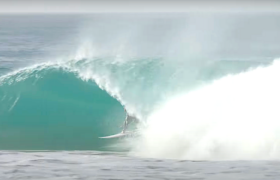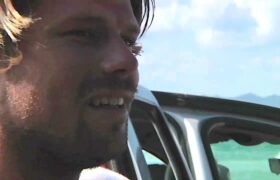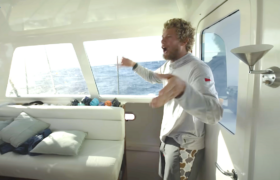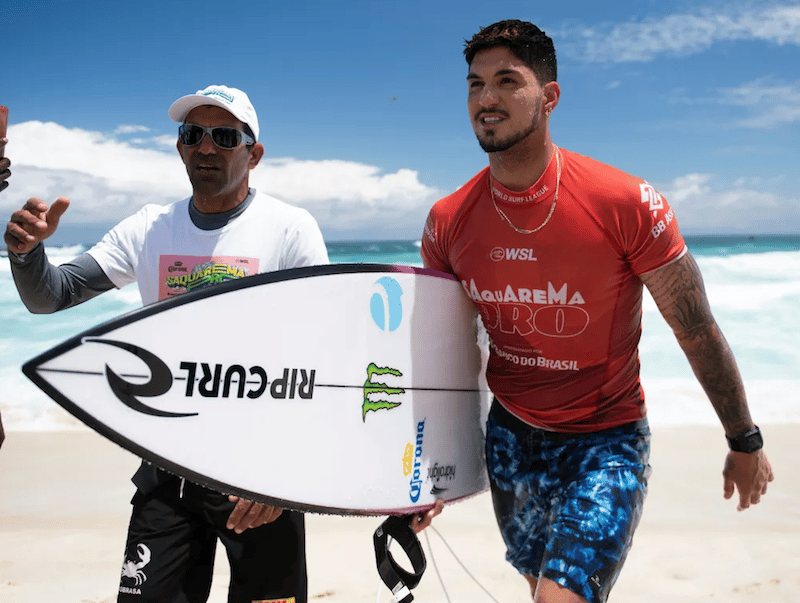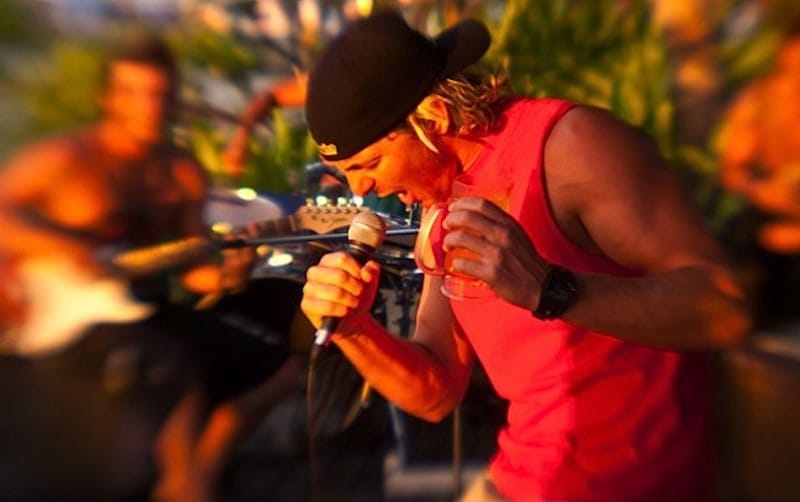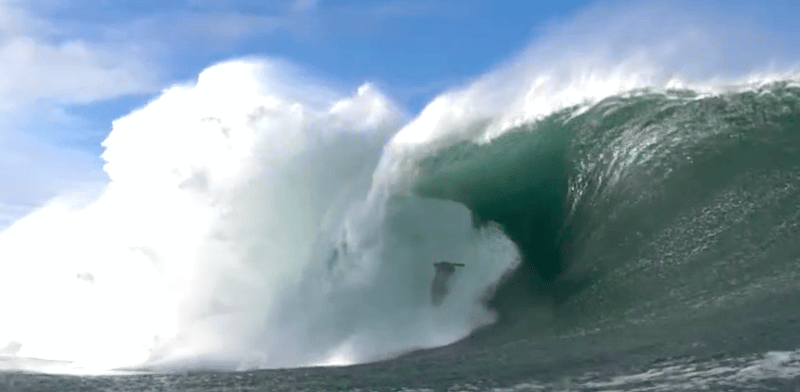"This one, in my eyes, might be the pinnacle of surf podcasting."
If, like me, you’re regularly disillusioned with surf “content” which often seems to fall short in terms of accuracy, quality or simply interest, I would strongly advise you listen to the recent “Ain’t That Swell” episode titled “The Passing of Andy Irons and The Days That Followed”.
It’s part of the A.T.S. “Greatest Stories Never Told” strand, which I’d have to say is my favourite.
This one, in my eyes, might be the pinnacle of surf podcasting.
Podcasting at its best (in my opinion) is a way to reinvigorate longform storytelling, to make great stories accessible and convenient to an audience of untrained readers.
In fact, the podcast I’d love to listen to (but never got around to making), would involve seminal and forgotten pieces from the history of surf writing, ideally read in full by the authors, followed by some questions about the process, reporting or situation in which the story occurred. This is a great example of why that format works.
It marks twelve years since Andy Irons was found dead in a Dallas hotel room, halfway home to his wife and unborn child; halfway away from life as a professional surfer.
One life burgeoning and full of promise; the other fading to a natural end.
The episode revisits Sean Doherty’s piece “Rainbow’s End”, written in the immediate aftermath of Irons’ death whilst Doherty was still in Puerto Rico, and he and countless others who knew and loved Andy tried to come to terms with what had happened.
As surfers, the tragedy of A.I. is burned in our collective consciousness. It’s a story with questions that remain unanswered, true of many stories that linger with us through our daily lives.
But what struck me about this episode was not questions about Andy’s death, but rather the phenomenal job by Doherty in capturing this moment in time.
What Sean Doherty did with “Rainbow’s End”, on a pure journalism level, is one of the finest pieces of surf writing ever produced.
The complexity of the situation and subject is unfathomable to me. To produce something coherent from it, something for people to cling to, beggars belief.
Doherty had been in Puerto Rico to report on Slater’s tenth world title, a seeming inevitability at that stage. In itself, this was a monumental story, perhaps the greatest ever in competition surfing history, and it was something he’d been working on for months.
Then Andy was dead.
And in the chaos no-one knew what to think, except they knew that everything was different.
What would you do in that situation?
Drink?
Fly immediately home to your family?
Shed tears with your friends and say fuck the world?
Or would you, as Doherty did, recognise the significance of the moment, the necessity of story, and your responsibility to your vocation?
There’s a Carol-Anne Duffy poem called “War Photographer”, about a man who wrestles with his purpose. The poem presents us with difficult questions.
Is it ok to simply record the suffering of others, neglecting your individual humanity in service of the greater good?
Is the sharing of tragedy necessary, in the hope it might save future lives?
He remembers the cries
of this man’s wife, how he sought approval
without words to do what someone must
The “must” suggests the answer to these questions must be Yes.
Real journalists believe in this “must”. They understand that stories give shape and form to our existence.
In the life and death of Andy Irons, there are lessons for all of us.
Doherty’s piece doesn’t necessarily dig all of this out, but it doesn’t need to. What it does is capture the raw, human grief of the moment, and touch on the ways in which Irons inspired those who knew him, particularly in professional surfing.
In the wake of abject tragedy, the only meaningful response is to recognise and celebrate those who share the impact. Easier said than done.
Somehow, when confronted with tragedy and outpourings of sorrow from the friends he was surrounded by, Sean Doherty had the fortitude to write the story of what it was like to exist in these moments, creating a historical timecapsule in a way that only the written word can.
Even more impressively, Doherty managed to wrangle what seems an impossible juxtaposition of two disparate stories into one, coherent narrative, and somehow do justice to both, remaining true to his original brief and telling the story of Kelly’s tenth title in tandem with the fallout from Andy’s death.
Staggeringly, he did it in just a few days to deadline.
I can scarcely imagine telling a story in the face of such shared and personal tragedy. I can’t imagine grieving alongside friends, yet still trying to elicit and record quotations.
I’m certainly more of a Fuck The World first responder.
The WCT is often mocked for the “one big family” vibe. It’s why the athletes and pundits are so frustratingly milquetoast. I get it. If you’re part of a crew that gets to travel the world and surf, why would you do anything that might burst that bubble?
Sean Doherty is very much part of the machine, close personal friend as he is with many of the people on and around the Tour. Is he always clear-eyed and impartial? Probably not. But he recognised the importance of history in this moment, of remaining professional and impersonal to tell this story in the face of such deep hurt.
Perhaps, given his relationships, he was one of the only people in the world who could’ve done it. By conscious decision or instinct, he did the job, and for that he should be lauded.
For all those who believe surf journalism isn’t a real job, that surfing isn’t a subject that warrants or blooms quality work beyond skimming a few waves, read some Sean Doherty.
I missed this piece at the time, as I’ve surely missed many great pieces in Australian surf media over the years, so I’m grateful for this airing on Ain’t That Swell.
I would advise you to consume this episode on a long drive home from surfing, a little bit tired, a little bit stoned, and more than a little raw and emotional. Pull over and have a little cry if you want.
Then go home and kiss your children.
